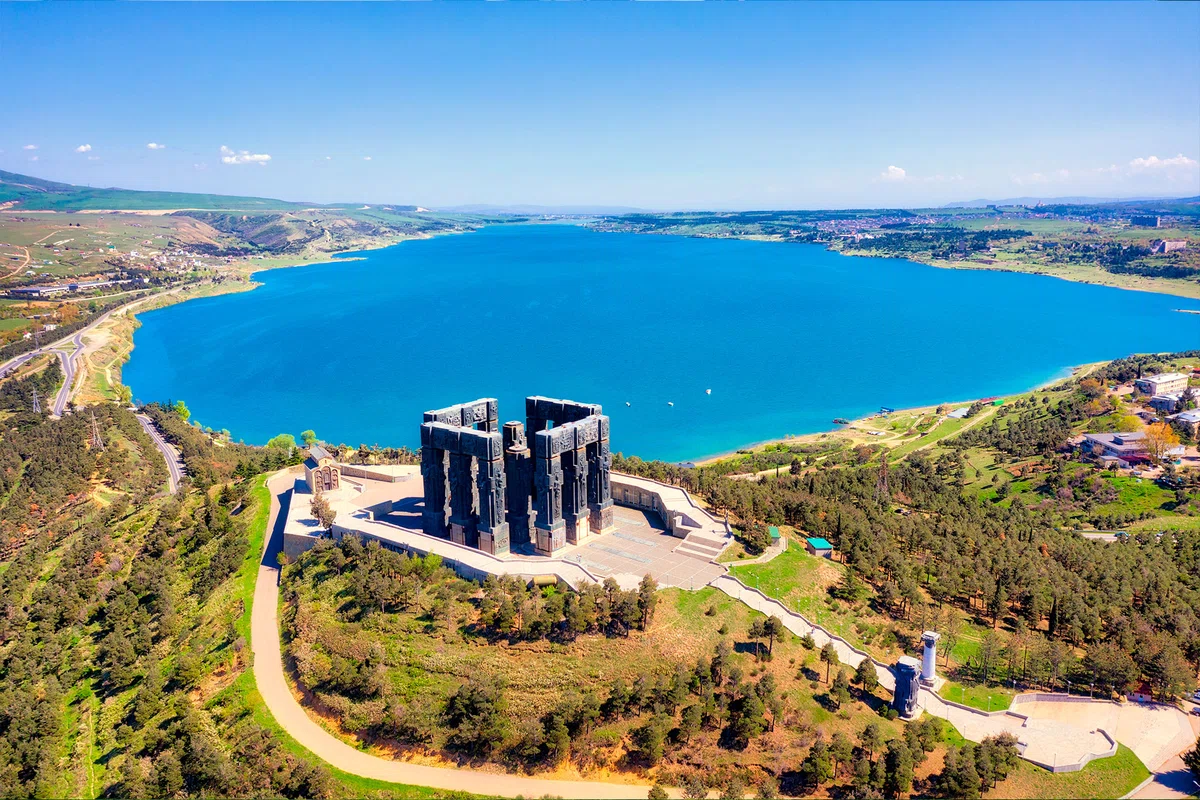
A selection of interesting facts about Georgia - Georgian table etiquette, traditions in Georgia. What sights of Georgia to see.
Table etiquette in Georgia is an important part of the cultural customs and traditions of the Georgian people. According to one version, Spanish Basques and Georgians have common ancestors - the most interesting facts about Georgia and Georgians in our publication...
The most interesting facts about Georgia and Georgians⬇️
- 1. Georgian language
- 2. The account system
- 3. The Basque country of Sakartvelo
- 4. The National Anthem of Georgia
- 5. Georgian table etiquette
- 6. National peculiarities
- 7. The capital of Georgia is Tbilisi
- 8. Church holidays of Georgia and their significance
- 9. Georgian singing - features
- 10. Bride Abduction in Georgia - history and modernity
As a rule, interesting facts about Georgia are often sought by future tourists. Traditions and legends of Georgians invariably amaze newly arrived vacationers. The unusual lifestyle of local residents, temperamental manner of communication, great friendliness and the desire to invite a stranger to try at least one glass of wine, all this may seem so unusual for a resident of central Russia.
Often it just puts you in a stupor, and you get the feeling that he was somewhere on another planet, but this planet is called Georgia. And let this little mountain country she does not mislead you with her size, believe me, she will conquer you with her soul.
There are so many incredible and curious things here that a very big vacation will not be enough to see them all.
No matter how banal it may sound, but at first glance, everything around will seem unusual to tourists: intricate panel houses with lots of balconies, kind policemen who are always ready to help.
Delicious inexpensive wine and huge portions of food, long toasts that carry a certain meaning and reveal another interesting legend or fact from history of Georgia, and finally, people who always go through life with a smile.
Georgian language
Unique the ancient alphabet, in which 33 letters have 5 vowels and 28 consonants, while there are no capital letters. Each sound has a separate letter. Everything is written the same way it sounds by ear. This greatly simplifies spelling.
In the Georgian language there is no division between the neuter, masculine and feminine gender. The grammatical structure of the Georgian language, according to some linguists, is much more complex than in most European languages. During the Soviet era, the Georgian SSR was the only union republic whose constitution specified the state status of the Georgian language.
The first book in Georgian was published in 1629 in the Vatican - it was a Georgian-Italian dictionary. On the territory of Georgia itself, the first published book was the poem "Knight in Tiger Skin", which was published in 1712.
Georgian language very conservative and almost never faced changes over the centuries - Georgian schoolchildren study Shota Rustaveli's poem in the original, along with the first monument of the 5th century Georgian script - "Martyrdom of Shushanik". Well, without too much modesty, we can say that according to numerous estimates, the Georgian language is one of the most beautiful languages in the world.
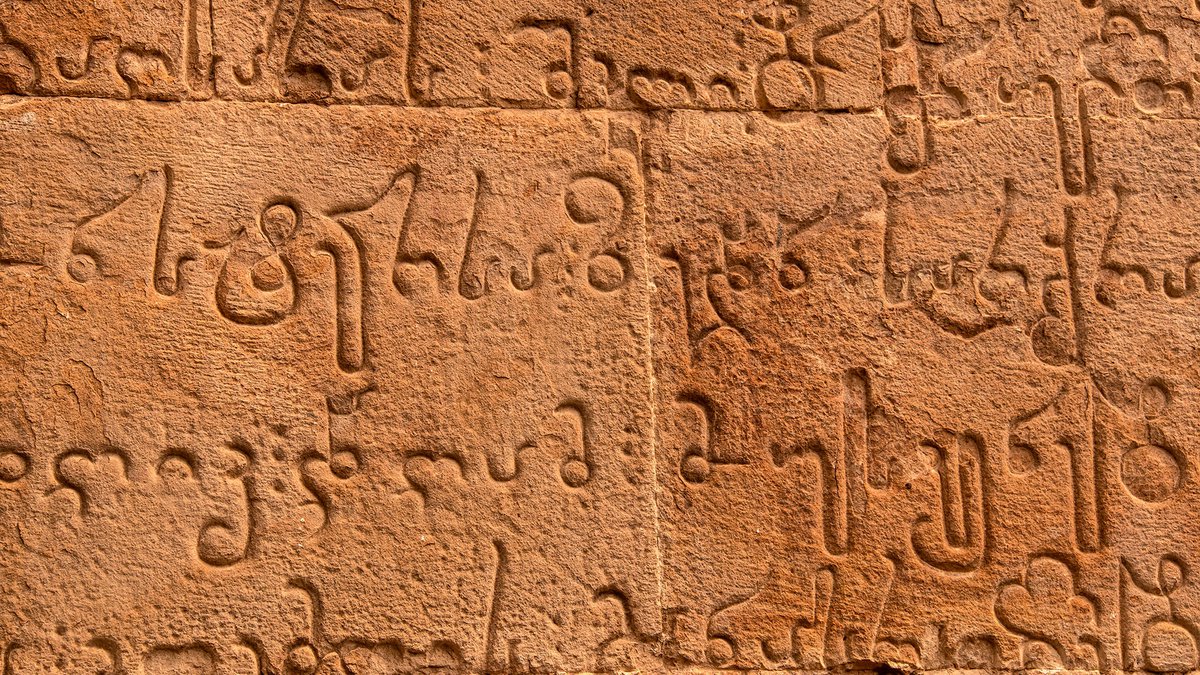
Account system
It turns out that, unlike other languages, Georgian has a twentyfold counting system: the number is determined by the number of twenties and the remainder. The ancient Maya Indians and the Basques had the same system of calculus.
Thus, "thirty-six" it will sound in Georgian like "twenty plus sixteen." And in the numeral "fifty" there will be nothing similar to the numeral "five", the roots of these words are different. "Fifty" in Georgian looks like "twice twenty and ten". Thus, first of all it is necessary to memorize the first twenty numerals.
Nowadays, the twentysecimal account is used by many Caucasian peoples - Chechens, Adygs and even Ossetians, who switched to such a system of counting from their native Iranian decimal. In Europe, this system is actually used by the Danes and the French. For example, the Danish number "60" literally translates as "the third twenty".
Hence the theory arises that decimal counting is historically peculiar to the Caucasian peoples, and the rest came from them. It is assumed that the Celts lived near the Caucasus, borrowed this system and brought it to Europe, and already from the Gallic Celts this system penetrated into the French language.

Basque Country Sakartvelo
By the way, some scientists hypothesize that the Basques and Georgians are fragments of some ancient unified cultural and ethnic array, especially since Spain and Georgia were called "Iberia" in ancient times.
It is assumed that both Georgians and Basques came from the same Caucasian tribe that lived on the territory of Colchis (now the territory of Abkhazia and Georgia), and gradually went west in search of gold. There is historical information that one of the kings of Georgia wrote to the King of Spain, addressing him "From the King of Iberia in the east to the King of Iberia in the west."
Also, until the 17th century, Georgian historians called the Basque Country Sakartvelo (Sakartvelo is the self-name of Georgia). At one time, when Georgy Saakadze asked for troops from Western Europe to fight the Turks and Persians, the Pope promised Georgians every possible military assistance if they accepted Catholicism, like their brothers: the Spaniards-Iberians.
Many modern travelers note the similarity between Spain and Georgia primarily in mentality. Indeed, there are many similarities in the two peoples: the cult of food, clay bowls for aging wine, songs, consonances in the language. But the theory of the relationship of Basques and Georgians has not received serious scientific support.
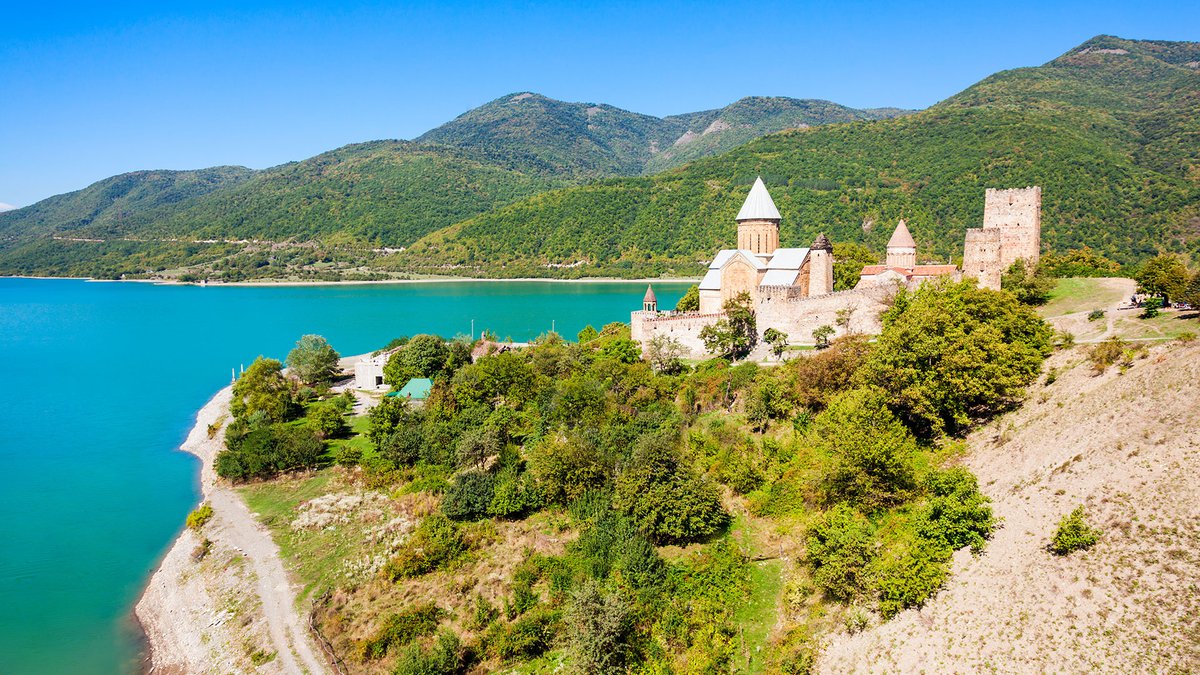
National Anthem of Georgia
The national anthem of Georgia, approved in April 2004, is called "Tavisupleba" ("Freedom"), one of the main state symbols of Georgia, along with the flag and coat of arms. The music of the anthem was taken from two operas by the composer Zahari Paliashvili, who lived in the early twentieth century, "Daisi" ("Twilight") and "Abesalom and Eteri".
The author of the text is modern Georgian poet David Magradze, who used quotes from the poems of Georgian classical poets - Akaki Tsereteli, Grigol Orbeliani and Galaktion Tabidze. Interestingly, in recent years, a new tradition has emerged among Georgians to stand up during the performance of the anthem and put their hand to their heart, as well as to sing the anthem at weddings.
The literal translation looks like this:
My icon is my homeland, its iconostasis is the whole world, Illuminated mountains and valleys Divided between equals by God. Our freedom today Sings to the future in glory, The star of dawn will rise And shine between two seas, Glory to freedom, Glory to Freedom!
On the anniversary of the "Gavrilovskaya night" in the center of Tbilisi, an action dedicated to the anniversary of the events of June 20-21, 2019 ended with the National Anthem of Georgia. Together with hundreds of people gathered on the main avenue of Tbilisi, the anthem was performed by the famous Georgian singer Tamara Chokhonelidze.
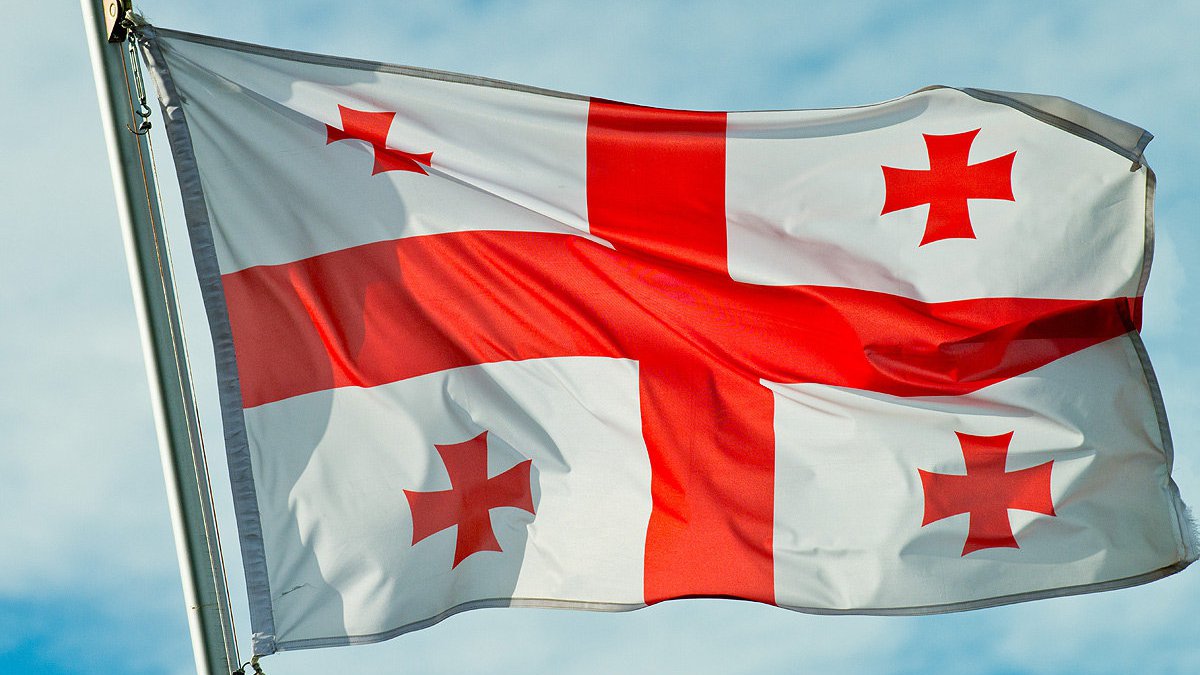
Georgian table etiquette
A mandatory attribute of Georgian hospitality is traditional feast. The peculiarity of the feast is the order at the table, the observance of etiquette. This is included in the area of responsibility of the toastmaster, who is chosen at the very beginning of the holiday. Toastmaster means the leader of the celebration.
Toasts are pronounced in a certain order. The first, obligatory, is a toast-greeting and a wish for general well-being to all those sitting. Then directly toast - congratulations on the holiday. Then there are the main, traditional toasts to peace and family, homeland, parents, children, deceased, relatives and friends. Last toast at the festive table, as a rule, it rises for the hosts, who are thanked for their hospitality, wish them happiness and well-being.
And finally, everyone drinks to the toastmaster, expressing gratitude for a pleasant evening.
It is impossible not to say and about Georgian cuisine - this is the food of the gods. You will not find such an abundance of food and drinks in any other cuisine in the world.
Of course, a Georgian feast cannot be imagined without "mtsvadi" — Georgian shish kebab and several types of wine. It is impossible to deny yourself the pleasure of trying everything that is on the plate. No wonder A.S. Pushkin wrote: "Every georgian dish - it's a poem."
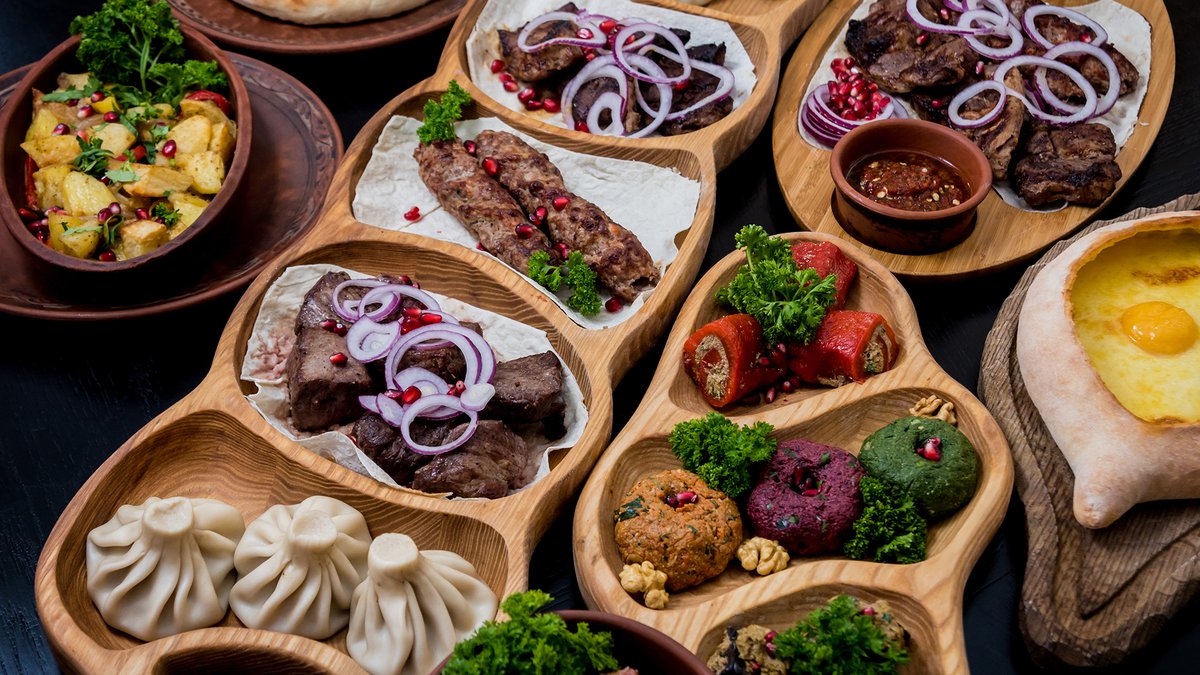
National peculiarities
Georgia is a multinational state, in which the majority of the population are the peoples of Transcaucasia. The total population of Georgia (excluding the partially recognized states of South Ossetia and Abkhazia) as of January 1, 2019 amounted to 3,723,500 people.
Despite the fact that the population of Tbilisi alone as a locality, according to the 2014 census, is 1,062,282 people In modern Georgia, according to the 2014 census, 10 ethnic groups live: Georgians (86.8%), Azerbaijanis (6.3%), Armenians (4.5%), Russians (0.7%), Ossetians (0.4%), Yezidis (0.3%), Ukrainians (0.2%), Chechens-Kistins (0.2%), Greeks (0.1%), Assyrians (0.1%), Jews, Abkhazians, Kurds, Avars and others (0.4%).
According to some reports, more than 120 nationalities live in Georgia!
The major cities of Georgia, Tbilisi, Batumi, Rustavi, are traditionally multinational. According to the 2002 census, in Tbilisi, out of 1,081,679 inhabitants, Georgians made up 84.2% (910,712 people), Armenians — 7.6% (82,586 people), Russians — 3.0% (32,580 people), Azerbaijanis — 1.01% (10,942 people), Ossetians — 1.0% (10 268 people), Greeks — 0.4% (3792 people), and others — 2.9% (27,471 people).
Jews live in Georgia for 2,600 years, there has never been and there is no anti-Semitism here. In Soviet times, Meskhetian Turks and Pontic Greeks were deported. Turks in the late 80s were forced to flee Uzbekistan due to ethnic conflicts, but they were never allowed to Georgia.
Georgia is recognized as a multicultural country, with more than 80% of the indigenous population professing Orthodoxy. The second largest religion is Islam, it is practiced by about 10% of residents. The Armenian Apostolic Church, Catholicism, Protestantism and Old Believer communities are also represented in the country. It is interesting that during the trip you can meet sights belonging to different religious movements: Jewish synagogues, Catholic churches and mosques.
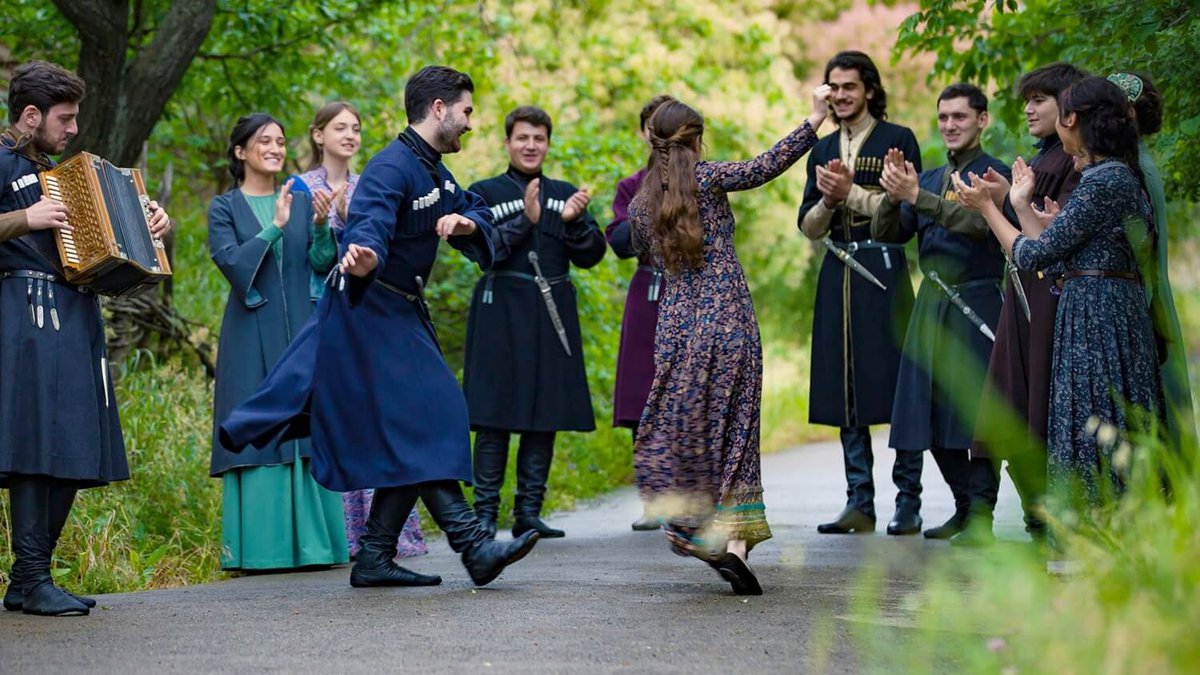
The capital of Georgia is Tbilisi
Tbilisi is one of the oldest cities in the world, he is about one and a half thousand years old. The name of the capital of Georgia comes from the word "tbili" — warm, because of the warm hydrogen sulfide springs flowing from the bowels of Mount Tabori. But Tbilisi was not always the capital in ancient times, this role was played by the city of Mtskheta, and then Kutaisi.
Interestingly, for 400 years (until the XI century) Tbilisi was the capital of an Arab feudal domain on the territory of Georgia, called the Tbilisi Emirate. At the moment, more than a third of the entire population of the country lives in Tbilisi. Today it is a large metropolis that has not lost its special charm, a city with a rich history and unique architecture.
Tbilisi is the largest city in Georgia, where more than a million people live. The capital of Georgia It is developing rapidly: new modern residential complexes and shopping and entertainment centers are being built, comfortable and equipped public spaces are appearing, foreign investments are being attracted.
In general, the city is becoming more and more interesting for tourists from year to year and is gaining sincere admiration from travelers from all over the world. A large number of historical and architectural monuments are concentrated in Tbilisi, revealing the history of the city and the whole of Georgia.
It is really difficult to find a more interesting and exciting city on the world map than the capital of Georgia. Many iconic sights, rich history, warm and mild climate, unique hospitality of Georgians — these and other advantages of Tbilisi can be enumerated endlessly!
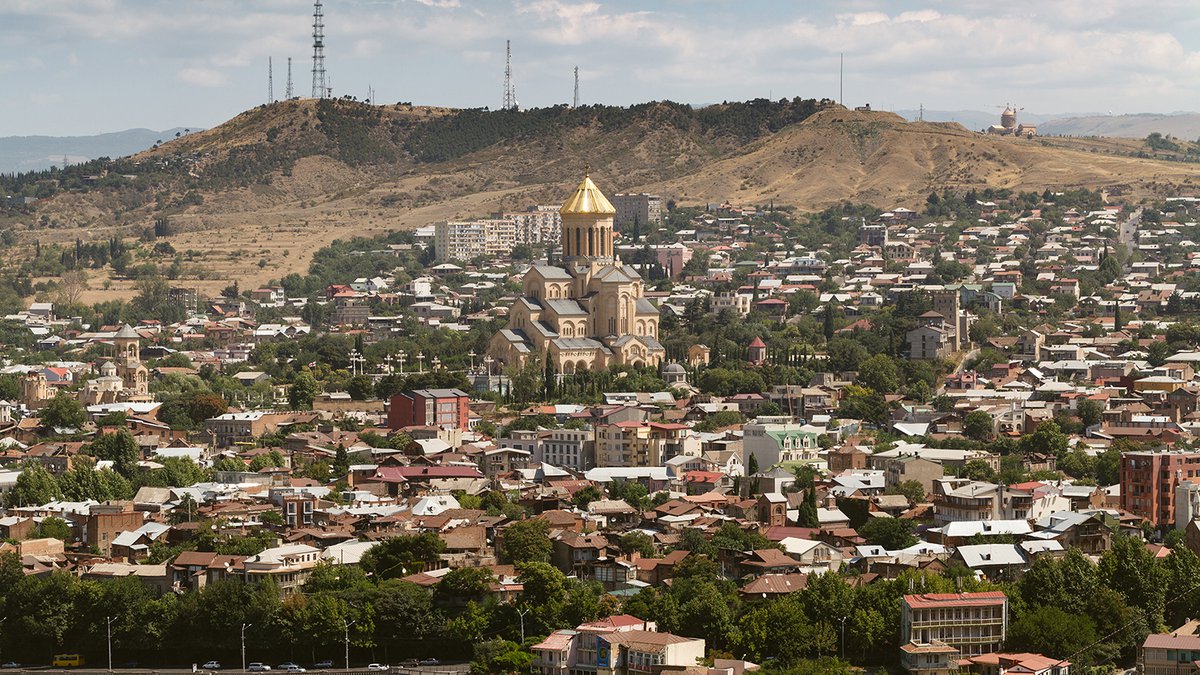
Church holidays of Georgia and their significance
After the collapse of the USSR, the bulk of the population became very religious, churches are always crowded, many observe fasts and honor religious holidays.
The main religious holidays of the country are Christmas, Epiphany, Easter, Assumption of the Blessed Virgin Mary, St. George's Day, Holy Trinity Day. Ninooba is a big church holiday dedicated to the arrival in Georgia of Saint Nino, who brought the Christian faith with her to Georgia.
On St. George's Day, this is the most revered and beloved saint among Georgians, everyone temples of Georgia the bells are ringing, and the faithful kneel in prayers to St. George. He is asked for the well-being of the family, the health of loved ones and peace. And of course, Rtveli, an ancient Georgian holiday in honor of the grape harvest day. It is not tied to any date, since the grape harvest in different parts of Georgia is different.
If you are eager to see real Georgian traditions try to visit this holiday. The Rtveli holiday is fun, dancing, laughter, songs, and, of course, the famous Georgian wine, which flows like a river on this day.
You can pay attention to how passing by the church, all people in public transport are baptized, not excluding the driver, who at the same time has a cigarette and a mobile phone in his hands.
One of the most important manifestations Georgian Orthodoxy fasts: in order to observe them and not lose customers, restaurants offer guests such uncharacteristic delights for Georgian cuisine, such as lean khachapuri or khinkali with potatoes and mushrooms.
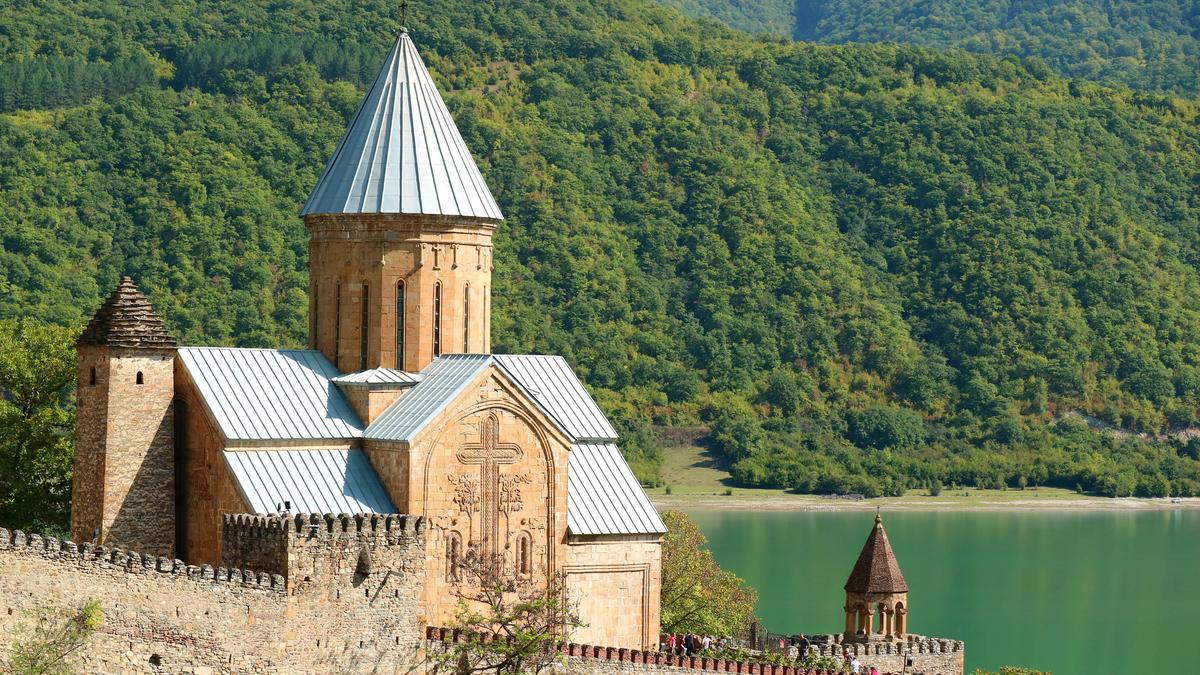
Georgian singing - features
One of the most interesting musical phenomena is Georgian polyphonic singing, comparable in antiquity to the Gregorian chorale. Every Georgian is proud of the traditional songs and musical culture of his country.
Georgian polyphonic singing is an invaluable tradition included in the UNESCO Intangible Cultural Heritage List. By tradition, typical georgian songs performed by men, with at least three vocal ranges. Interestingly, on the Voyager space probe, sent by NASA in 1976 to look for brothers in extraterrestrial intelligence, there is a record with recordings, among which there is a Georgian folk song "Chakrulo".
Singing is an integral component of the legendary Georgian hospitality and it is an important part of the Georgian feast.
Supra Georgian feast — can last for several hours, and will necessarily include long and eloquent toasts, followed by a corresponding song.
Unfortunately, 70 years of Soviet repression negatively affected Georgian traditional music, and some of the songs were forgotten forever. Since the collapse of the USSR, musicologists have been collecting and reviving old songs.
It is noteworthy that after the adoption of Christianity, Georgian folk songs began to develop in a religious context, especially church chanting. Each region of Georgia has characteristic features of polyphony and monophony, for example, bourdon is found in the songs of Kakheti. In total, there are 15 types of Georgian polyphony.
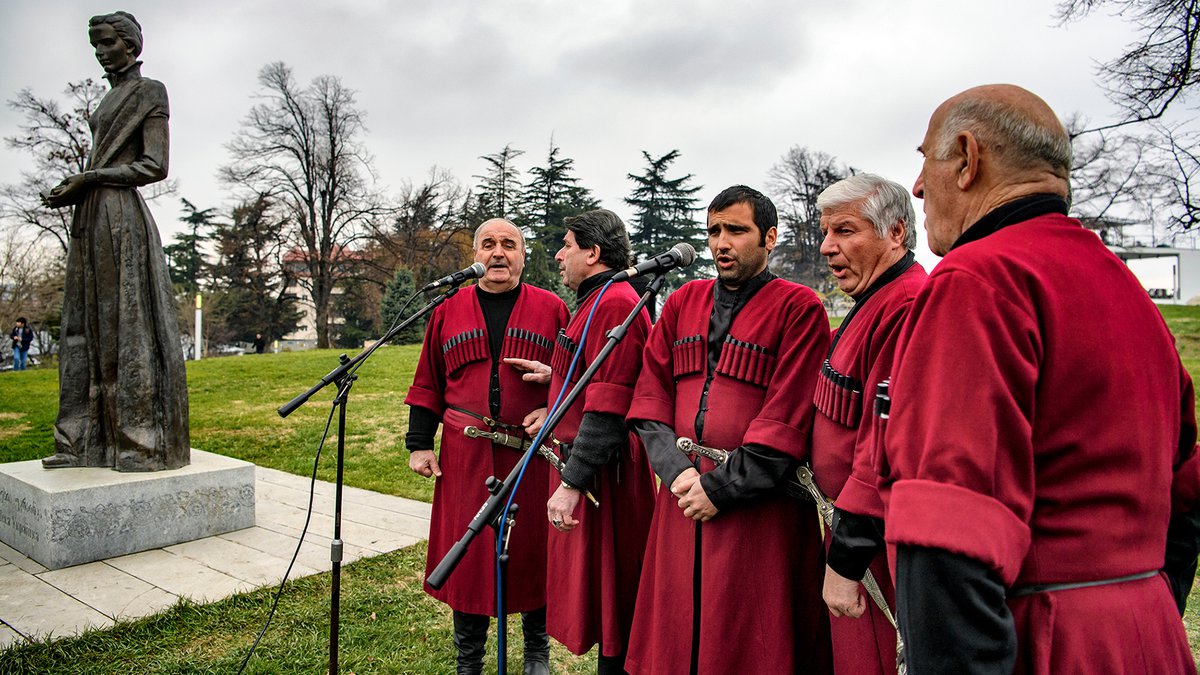
Bride Abduction in Georgia - history and modernity
The practice of bride kidnapping and forced marriage, common in the Caucasus, is currently considered a crime in most countries of the world, and not a legal type of marriage. The advantage of kidnapping the bride for the groom is that in this case he does not have to pay the bride's parents kalym.
Usually the groom with his friends or the groom's friends without him kidnap the bride and bring her to the groom's house. There, the groom's relatives try to calm the kidnapped girl and persuade her to marry her abductor. However, sometimes the abduction of the bride occurs with universal consent as a rite that allows you to circumvent some other traditional prohibitions.
In Georgia the custom of bride kidnapping it was in use just a few years ago, a girl could have been kidnapped in order to get married. Historically, bride kidnapping was commonplace and justified if it was done with the consent of the bride.
In the twenty-first century, this tradition has lost its relevance, but it is sometimes practiced in more rural areas. It is clear that most often such abductions were "contractual" and were committed by mutual consent.
In recent years, when criminal responsibility has intensified in the country, cases of abduction have practically disappeared: there is always a risk that a girl who gave unambiguous hints may later change her mind and put her failed husband in prison.
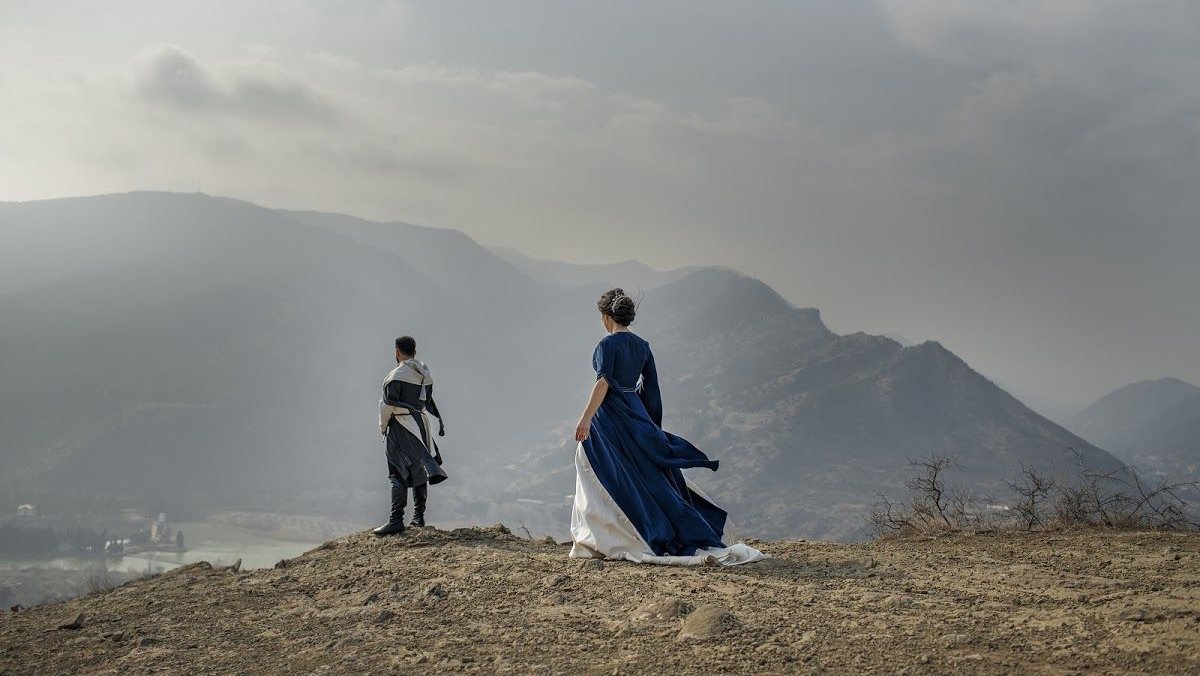






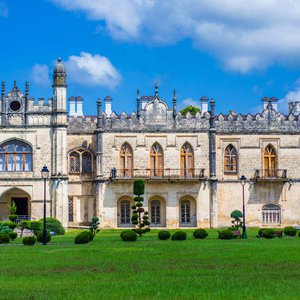







43 comments
Log in to leave a comment
Радует, что статья упоминула про пение, а именно полифонический вокал. Однако про это мало почитать, это нужно услышать!
Я не знала, что в Грузии есть город Рустави, и самое интересное из статьи, что меня действительно удивило это похищение невест, рада, что это уже в далеком прошлом, думала это традиция была только на Северном Кавказе. Очень интересная, открытая статья, полезная, можно даже рассказать друзьям.